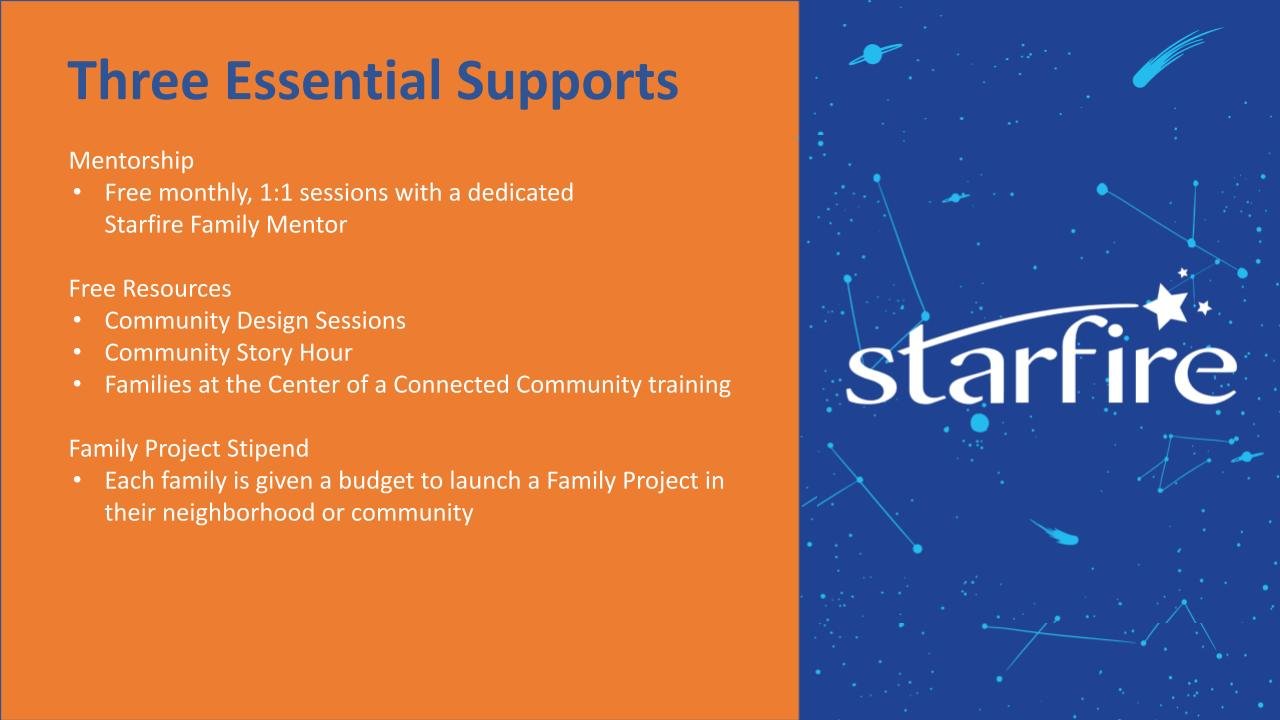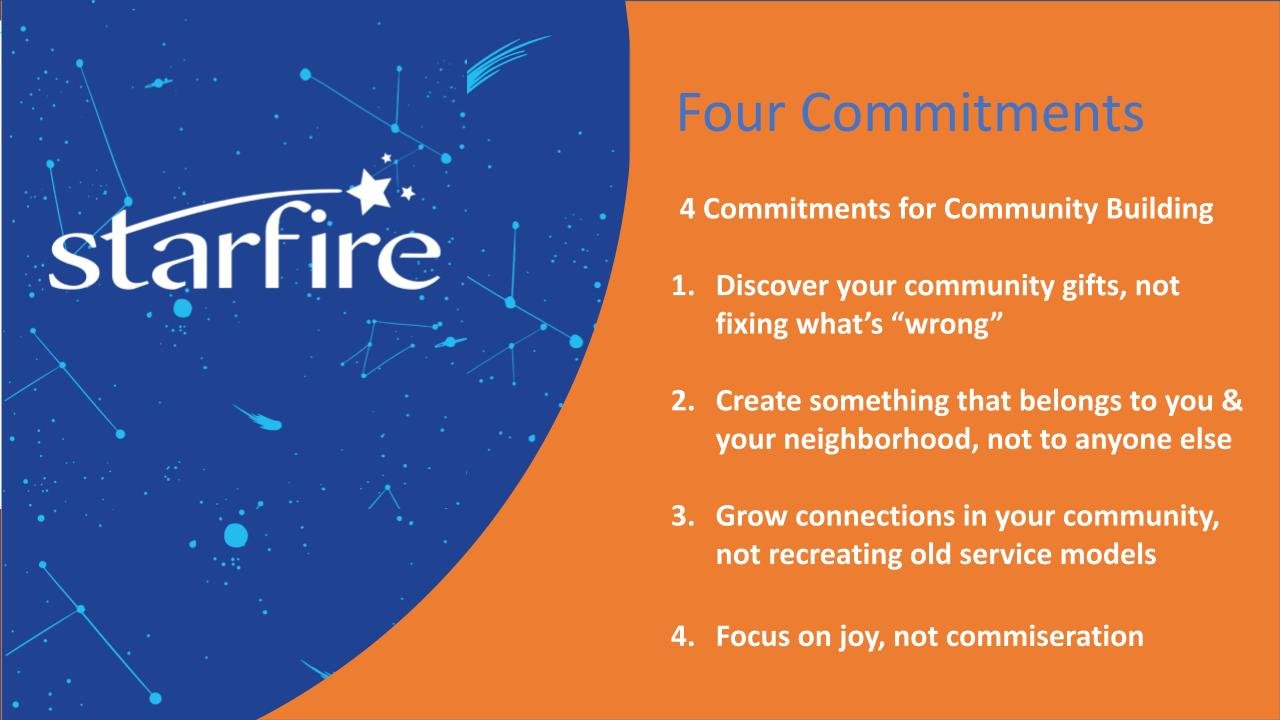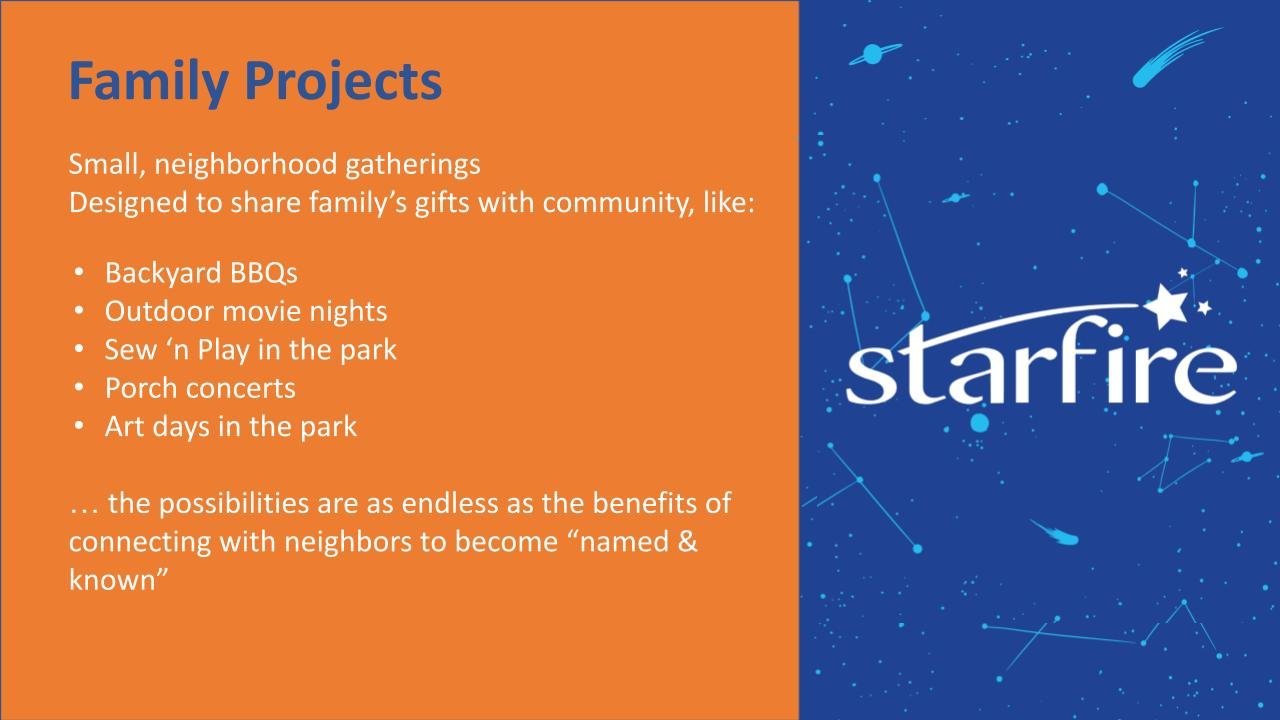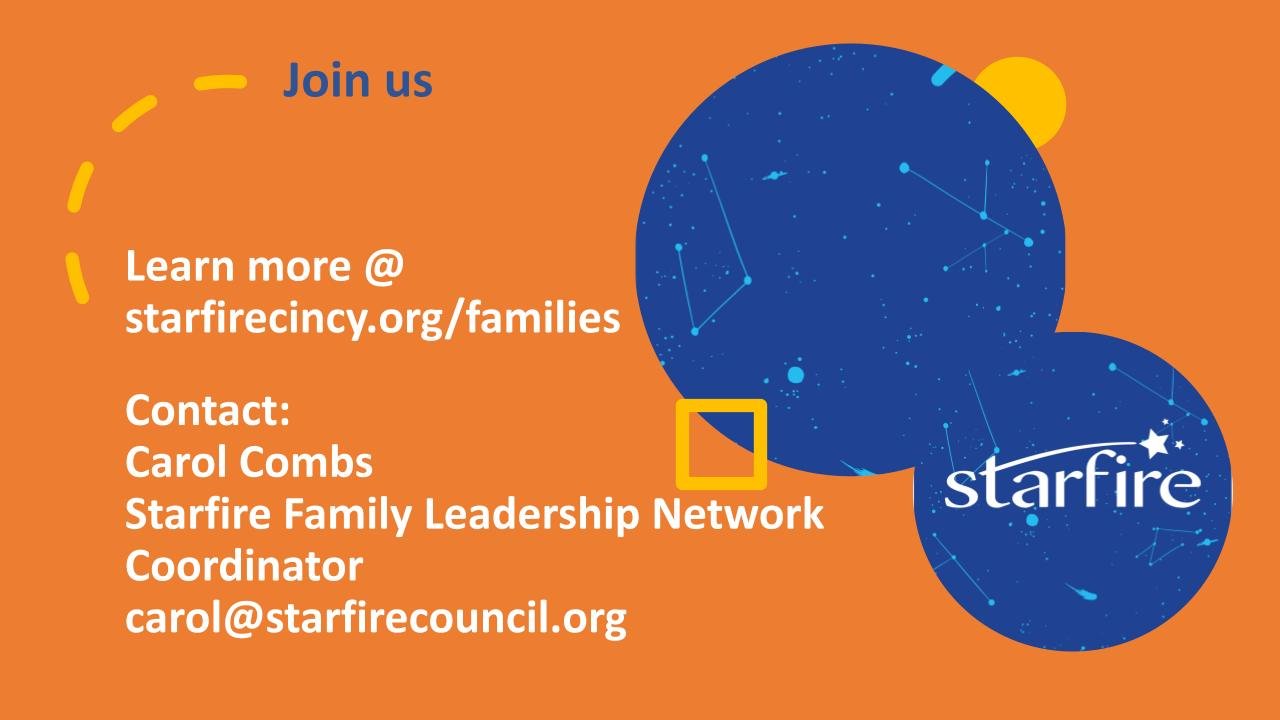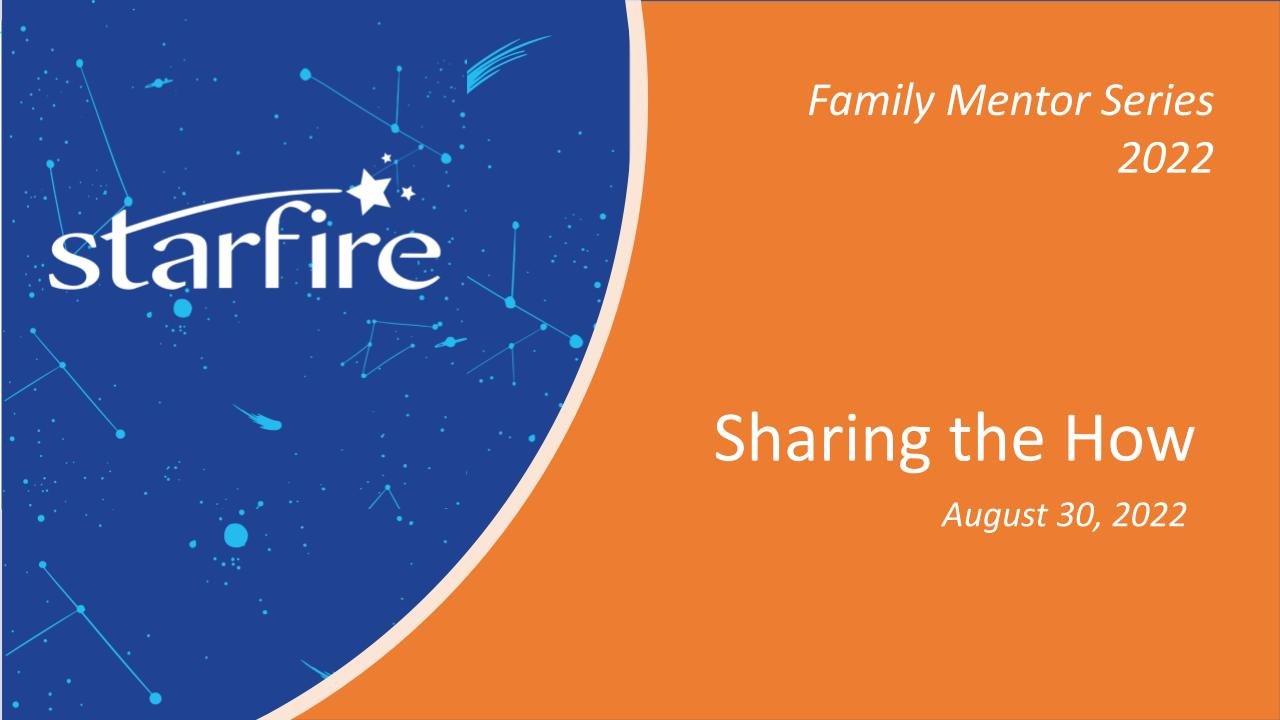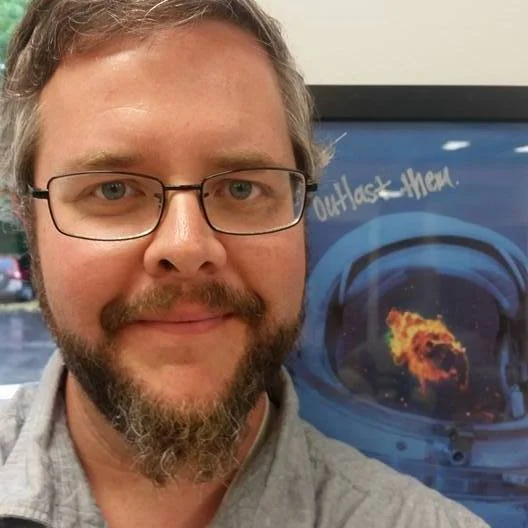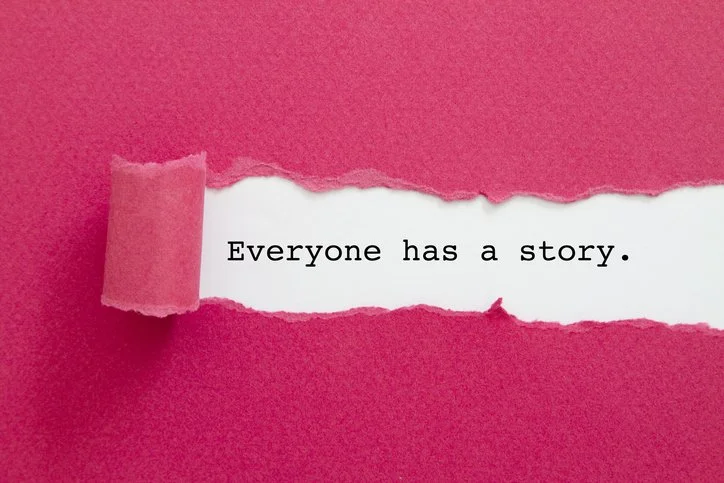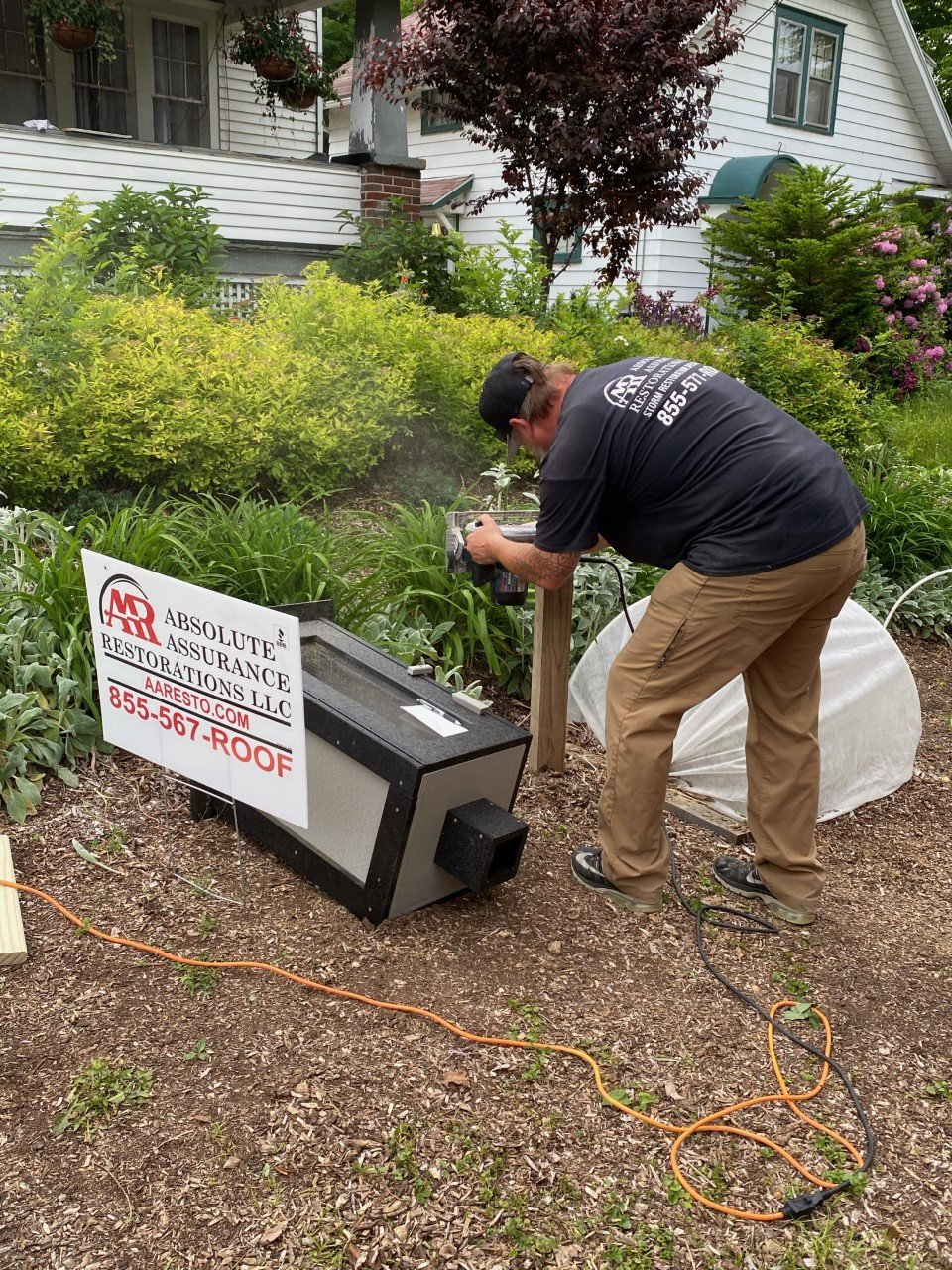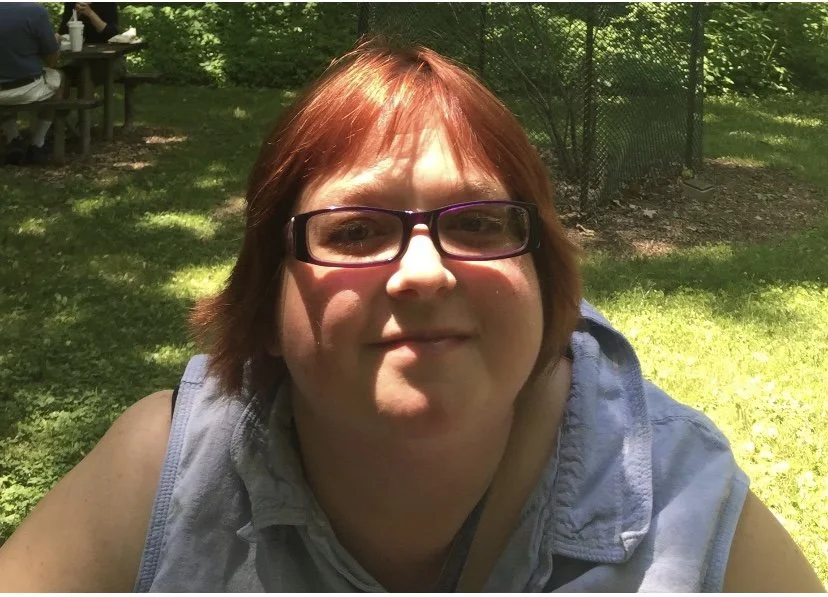Denny: [00:19:09] He moved in. I remember, I drove over and picked him up. There's a funny photograph. I think it's funny, of Don looking all pissed off cause he's with three staff and that like one is the social, the young, sorry, I don't mean to be stereotypical here, but the young perky social worker who's about 22. Then there's the nurse, who's worked with Don for a long time and she's smiling. And then there's the direct service staff from the institution that is looking just as like pissed off as Don is. It's funny, you know.
Katie: [00:19:45] That picture is in the show notes or it's linked somehow to this podcast, so if you want to check it out, you can see it.
Denny: [00:19:51] But I think, one of the things about direct service staff during this era, and I don't want to, you know, tar everyone with this brush. I mean, there's lots of great direct service, support staff, wonderful people that are doing everything for the right reasons.
But in this era in large institutions, especially I think the staff and this is probably still true for a lot of staff, but they would tend to focus on the deficiencies of people that they purportedly supported, rather than the strengths, the gifts, the passions, the skills, the interests. You know, they weren't interested, they didn't see any of that. They just saw a guy that smoked cigarettes up his nose. He had no teeth,by the way, that were all pulled out in the institution. I don't know why, but he had not a tooth in his head. You know, he did have false teeth, but he refused to wear them, in typical Don irascible fashion. That was part of the difficulty, I think, for a lot of staff.
Katie: [00:20:55] Yeah. And his face at the cottage institution when he was leaving or was it the cottage there?
Denny: [00:21:00] Yeah, yeah, yeah. Yeah. He didn't look happy. He looked irritated in that photograph.
Katie: [00:21:05] Then he gets to Gracely Drive?
Denny: [00:21:06] But he gets to Gracely Drive. You know, we got him a key. And, you know, something he could wear around his neck,because that's what he wanted, even though that's not the most typical thing. And it kind of identifies him maybe as you know, we were working on changing that.
Katie: [00:21:20] Just imagery-wise, you mean?
Denny: [00:21:21] It's not the best.
Exactly. Yeah. I mean, you know, most people don't have a key on a ring around their neck, you know, and a chain around their neck. But, anyway, that's where we started. And he was really happy. He had an easy chair in there. And he was pretty happy to be there. But to him, Gracely Drive meant moving back to the house he grew up in. So there was that.
Katie: [00:21:45] 30 years ago, right?
Denny: [00:21:46] Exactly. But Ricky was living there and that wasn't happening.
Katie: [00:21:51] Yeah. Real world isn't always what it is in our minds and in our dreams and what we what we aspire for. So when you started walking around the neighborhood with Don to kind of get acclimated to this new world of 30 years later Sayler Park, did you find any people who knew him?
Denny: [00:22:10] Well, the next door neighbors, there are the people that lived a couple doors down from that house. They were elderly now, but we stopped over to see them and they were happy that Don was back and we had tea and cookies
Katie: [00:22:23] Are these the same neighbors that he used to talk about?
Denny: [00:22:25] Yeah.
Katie: [00:22:25] Oh, wow.
Denny: [00:22:26] Yeah, they were still alive. Although, Bill died shortly thereafter, the husband. They were both in their probably mid to late eighties, I would think. So they weren't getting out and about too much. They were pretty much home bodies.
Katie: [00:22:39] What a beautiful reunion. Were they surprised to see him?
Denny: [00:22:45] Well, I had had contact with them. That was part of the legwork I had done earlier, notifying them and contacting them. And we had been over to visit them before.
Katie: [00:22:55] So what was the reunion like when you first went?
Denny: [00:22:58] It was touching. Yeah. It was touching. There was a little hug from the, I forget the wife's name now, Harriett, and maybe . But yeah, it was very sweet and Don was happy to see her and I think he felt a little bit of a homecoming then, so that was good. Yeah, that was great.
Katie: [00:23:17] Tell me about the safety that he experienced home on Gracely Drive and the safety he experienced in the institution. Can we, can we draw a comparison?
Denny: [00:23:28] Sure. I mean, well, that's, we'll talk a little bit in generality, but you know, I mentioned before a lot of the staff see deficiency, not gift. The training isn't particularly good. A lot of staff when left to their own devices are capable of some very bad behavior. Don talked about when he lived at Orient, someone held a knife to his throat and he said it was a staff person. I believe him. I mean, but you know, who knows? He was robbed a lot. He had personal possessions stolen, a lot money. When he lived at Orient, I didn't witness anything like that, but in institutions a lot of times, people are vulnerable and part of it is even though they live in an institution, they can still be isolated and lonely. They're not really very happy to be there. I used to think this was very ironic, you know, that people don't even have a space or a time when they can be alone. And we used to fund, like in people's plans, there was actually alone time with something that was allocated. They get three hours of alone time a day, which I always thought that was for all good intentions, but you see how weird that is.
Katie: [00:24:39] It's still in people's plans where this person gets no alone time, right?
Denny: [00:24:44] No alone time, meaning they have 24 hour, seven day a week supervision. Does that make them safer? If their staff is good, if they have a relationship with their staff. The quality of the service is only as good as the quality of the relationship. And one of the things about community services are that direct care staff are turning over constantly. There's always new people and some of them are not good. Some of them are just there to make 10 bucks an hour or 12 bucks an hour. I mean, they're not paid. They don't have a commitment to the work. And sometimes they're resentful, because of the lack of training, they tend to interact with the people that they're supposed to be respectfully supporting like they're a bad child.
Katie: [00:25:34] It's lack of training in the good training sense and it's poor training, too much bad training. Right? It's to get to your point that it's deficiency based. There's still a lot of deficiency based training out there. In terms of "This is your behavior plan, and this is the person's case file. And let's go through and not think about anything that is about their passions or interests or strengths." It's about "This is how you have to show up for this person to, quote unquote, be safe because they are violent or they are these things" that get labeled onto a person and then they never leave.
And to your point about the institution saying you believe him when he tells you these stories, but no one was there to even witness it.
Denny: [00:26:17] Exactly. No one is there to know if things aren't going good. Or no one comments. I mean, theoretically there's a quality assurance, even in the state institution, there were supposed to be some kind of quality assurance, but really that didn't exist. It was just kind of what went on behind closed doors. I don't have to tell you there's all kinds of horrible things that have happened. You know, you think about Willowbrook, if you've ever seen any footage of that or any of the big state institutions. It's just not a good thing to do, segregate people. It's bad and congregate them.
Katie: [00:26:50] And what you're saying is that people are still home in situations where they're not known by neighbors. And the only people they know or who know them are staff, and there still can be things that happen behind closed doors, to your point of it depends on their quality of the relationship and the training of these direct support workers.
And so while we might have a different iteration of what an institution looks like, we still have these abuses happening in people's homes.
Denny: [00:27:17] I think people who need support come to believe that they deserve no better. This is like as good as it gets, a staff person that resents their presence. Part of it is too, there's no recourse, like what do you do? Who do you tell? In theory, now you can talk to your SSA and say "This is bad. And I went out of here."
Katie: [00:27:41] Who also turnover on a pretty regular basis.
Denny: [00:27:43] Right. And who also are hamstrung by lack of options.
Katie: [00:27:47] And a huge amount of people that they're working for.
Denny: [00:27:50] Exactly, too many people to know all very intimately. You know, and there's not really many options for, this person's already placed. So that's one less person to worry about, a lot of times they get discouraged from wanting something better.
I think it's
Katie: [00:28:06] pretty obvious to the listener but I want
Denny: [00:28:08] to
Katie: [00:28:08] make sure we do make the distinction between Harriet and Bill and a direct support worker in a institution.
Denny: [00:28:16] Yeah. All right. I mean, they're, those are like citizens, free citizens that have want to have a relationship with Don. They remember him when he was a boy. They have a lot of affection for him. They want things to go better for him. They were sad the way his life turned out. Staff don't know Don, they don't know that history and they don't typically find out anything about his history.
Katie: [00:28:45] And then there are staff like you who are more of the Jedi staff. So there are Jedi staff out there and there are people who have been direct support workers with the same people for 30 years.
I just want to acknowledge that and they are caring, loving, presences in people's lives.
Denny: [00:29:02] There are lots of good people that do this work. It's just that they're not all good. Like anything.
Katie: [00:29:07] Yeah. So it's like the risk there. There's just a risk. And the greater the risk is that less people who know that person who aren't necessarily paid or trained to control them or support them. They're not paid. They don't have a manager telling them what to do. You're somebody who who's known Don his whole life and you care about him.
And that's not to say things in the community can't be dangerous, but I think really teasing this out, it's about how many eyes are on everyone. So are you one person in a house, an apartment with only staff and no other eyes on you, but staff? Or are you on Gracely Drive, walking down the street in a community of a lot of eyes where people are looking out for each other?
And that's why it's so important when we talk about community building. It can't just be in community, in isolation. It has to be in community in a fabric that's woven together of people who know each other and kind of look out for each other. Right?
Denny: [00:30:15] And predictable patterns are good, like go to the coffee shop every morning at nine o'clock and you kind of get to know people, or go to the library on a regular basis and get to know people that way.
So there's strategies and rhythms that are more conducive to community building that can counter that possibility of isolation. Even with Don, the staff weren't really into putting themselves out. The fact that, frankly, the Butler County SSA director was his pal gave them some purchase to be on their toes a little bit more than they typically would.
Or if his sister and nephew had been around more, it would have been the same. It's like with anything, when people see that you're valued by others, then they tend to treat you with more respect. But if you have no connection, no relationships, nobody that really cares about you then, it's easy to get isolated and alone and be more vulnerable.
Katie: [00:31:21] Throw away.
Denny: [00:31:24] Most people with disabilities are poor. Seventy-five percent are still unemployed. I think maybe that's improved a little bit, but that was the stat. So poor people don't have a lot of options. They're more at risk, frankly. So that's part of how it goes.
Katie: [00:31:44] There is a lot of hope right now in that what we're doing at Starfire and with Goodlife Networks is part of that hope. And this is a reminder about why we do it.
Denny: [00:31:54] It's where we've come from. it's the way that benevolent services were envisioned were, under the best intentions, put people together and keep them with their own kind and protect them. Like I'm sure that doctor, when he told Don's mother to move him into Orient had good intentions for Don, but he didn't know the reality of what life was like there.
Katie: [00:32:18] And if we don't talk about the realities of what can happen when, then it's going to be another doctor down the road saying something.
Denny: [00:32:25] Don basically had no choice, no connection, no real support. He never left the institution. I think, the work we're trying to do now is have people be known. It's more on community.
And Harriet and Bill, they don't have a son or daughter with a disability, but they're part of the community. Clearly they know people on their street so, "Come on in, lets..."
Right. They have a long history of that. They had a long history.
Katie: [00:32:51] A lot of allies and people that I think are going to make it more rich. So take me back to the day of Don's funeral and tell me what that was like.
Denny: [00:33:00] Well, it was pretty sad because Don had only moved into his apartment nine months before. And, as I've said, the many years of living in the institution had taken its toll. I mean, his main form of recreation was cigarette smoking cigarette smoking up his nose. So after about nine months of living in his own apartment, he just stepped out of the shower one day and keeled over, had a heart attack and died. So it was very sudden. And he was 63 years old when he passed away. I felt pretty sad and a lot of people did because he had had such a long journey on his sort of circuitous path on the way back to Gracely Drive. There were a lot of human services people at his funeral. the superintendent that funded his services came. All his family came. A lot of people from the community came, a lot of people from Sayler Park when I didn't know who they were, came, that knew Don or remembered him or knew his family and came to pay respects.
Katie: [00:34:07] What do you think it would have looked like if he was in the institution when he died?
Denny: [00:34:12] Yeah, I don't know. I mean, you know, there was a whole thing about when I was working, if someone died and they had no one, which was common, there was no one to pay for the funeral and you couldn't use support dollars to pay for a funeral. So we would literally pass the hat.
Katie: [00:34:33] Wow.
Denny: [00:34:33] Yeah. I mean, so what does that tell you? It would have been more like that. You know, maybe because he'd lived in a state institution, the state, I don't know, but...
Katie: [00:34:42] Who would have been there?
Denny: [00:34:44] Yeah. Me and a few, you know, staff, some staff would have shown up for sure. I know. Certainly nobody, from the community in Sayler Park or unlikely. His sister and I doubt if his nephew would have come. His sister might, cause I mean, it was right on, the funeral home is right on Gracely Drive. That was right in Sayler Park, in the heart of Sayler Park. You know, if he had died in Fairfield, then that would have been totally different.
Yeah. It's hard to say, but it would not have been in a community event of people coming together to remember and pay tribute to a tenacious old coot like Don. Well, that's what he was.
Katie: [00:35:25] When you first told me that he died only nine months after he moved in, I thought, "What a tragedy,". I was really heartbroken by that. And then I thought about it and I just realized, you know, it's actually such a triumph that he spent his last days exactly where he wanted to be. And he was home when he passed.
Denny: [00:35:45] Maybe not exactly, but as close as we could get him, you know? And so, yeah, it was definitely a big improvement. A lot of people expressed similar comments as what you just said that, "Well, he ended up his life where he wanted to be." And that is true. I'm always like, "Well, it wasn't exactly". But, but no, I mean, generally it was a thousand percent better. And you know, it's hard. There is no ideal. Let's face it. A lot of people never achieve their dream, but, that was a pretty good effort to do it.
Katie: [00:36:17] Yeah. Well, thank you so much for sharing the story. I think it's really important. One to remind us about community and how lucky and fortunate so many people are to live on a street with neighbors and to start to recognize that as, "Hey, maybe I should go talk to these people."
Denny: [00:36:35] Yeah. When you bake bread, you make two loaves and give one away, you know?
Have a block party. Whatever. Drink a beer with your neighbor on occasion. Or a coffee.
Katie: [00:36:44] Look out for each other. Right?
Denny: [00:36:46] Exactly. Look out for each other. Most importantly.
Katie: [00:36:50] Thank you.
Denny: [00:36:50] Thank you.
Katie: [00:36:51] Thanks for your time.
Thanks so much for listening. If you are interested in learning more about what Starfire does head over to our website. Starfire cincy.org. And maybe while you're there drop us a donation to keep good work in the lives of people with disabilities and families going. .






